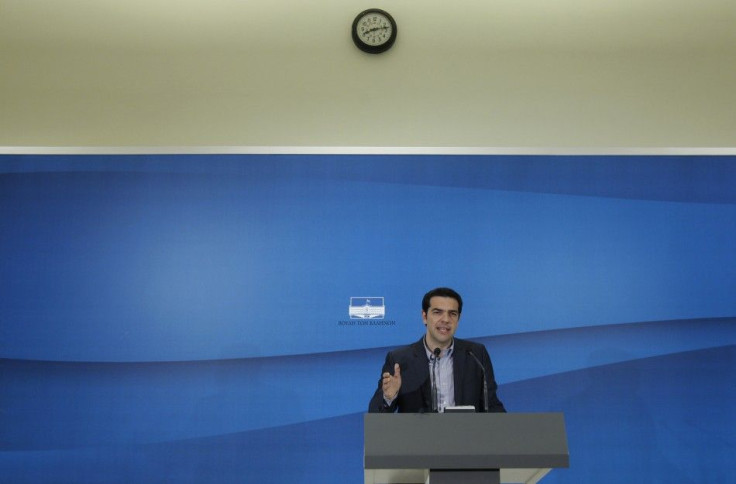Greece: Socialists Fail To Form Unity Government, New Elections Probable

Evangelos Venizelos, the leader of Greece’s Socialist PASOK party has failed to form a coalition government, raising the likelihood of new elections next month as the country edges closer to a dramatic exit from the euro zone.
Venizelos will return the mandate to President Karolos Papoulias, a PASOK party official told Reuters.
Now three of Greece’s leading parties, including conservative New Democracy (ND) and the left-wing Syriza party, have failed to form a new government, in the wake of last weekend’s fractured parliamentary vote that gave no one party anything close to a majority.
Meanwhile, Papoulias's office said the president will meet with Venizelos on Saturday.
I hope that during the meeting with Karolos Papoulias, each party will assume its responsibilities, Venizelos said.
Tsipras, whose party ruled out any austerity measures related to the huge bailouts provided to Greece by the European Union and International Monetary Fund, refused to join Venizelos, who has steadfastly advocated harsh spending cuts to reduce Greece’s massive debt and repay loans.
It is not the Left Coalition [Syriza] that has refused this proposal, but the Greek people who did so with their vote [last] Sunday.”
Syriza finished a surprising second in last weekend’s parliamentary election, second only to ND, giving it an outsized role in the ongoing drama, Moreover, in the event of a new election, polls suggest Syriza will do even better, perhaps gain as many as 28 percent of the electorate – a development that would likely doom Greece’s membership in the euro zone and trigger a Europe-wide financial calamity.
Tsipras said he could not join any coalition that would impose harsh spending cuts and other hardships on the Greek people.
“I want to underline that the refusal of this proposal isn’t coming from Syriza, but from the Greek people themselves,” he told state TV.
“The people have already rejected the bailout so no government has the right to implement it.”
Antonis Samaras, the head of ND, stated he would not like to see another round of elections.
“We are fighting to form a government and there are still hopes for this,” he told ND lawmakers.
“If there are elections, which I repeat there shouldn’t be, the dilemma for voters then will be whether we stay in Europe and the euro.”
Under the nation’s laws, a new poll will have to be called if parties cannot reach some kind of consensus by next Thursday.
Greece’s creditors have already warned Athens that it must abide by the strict terms of the huge bailouts it has received from the European Union and International Monetary Fund or face expulsion from the euro zone.
On Friday, Guido Westerwelle, Germany’s Foreign Minister warned: The future of Greece in the euro zone lies in the hands of Greece. We want to and we will help Greece, but Greece has to be ready to accept help. If Greece strays from the agreed reform path, then the payment of further aid tranches won't be possible. Solidarity is not a one-way street.
Ben May, an economist at London-based Capital Economics, painted a doomsday scenario, indicating that Athens may soon run out of money.
“If Greece receives no further bailout payments, the finance ministry has indicated that it might run out of money by the end of June,” he said.
“Even if a new pro-bailout government is in office by mid June, further loan payments may not be released until July or beyond. The troika [EU/IMF/ ECB] will want Greece to meet at least some of the conditions of the bailout before lending any more money.”
© Copyright IBTimes 2025. All rights reserved.





















